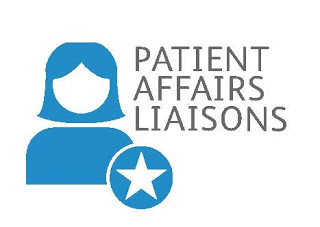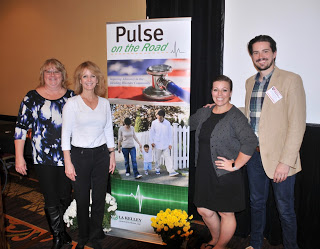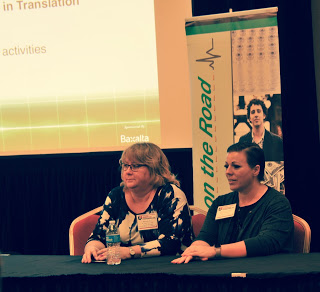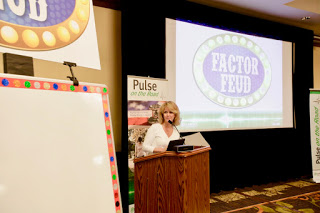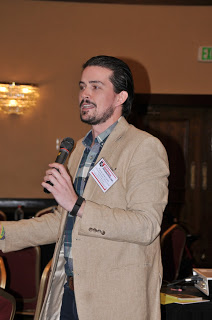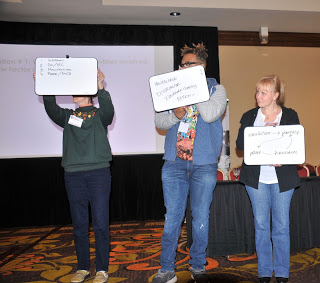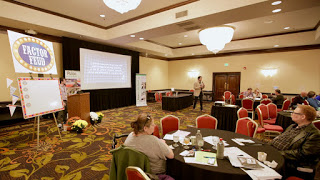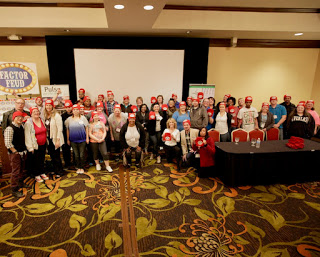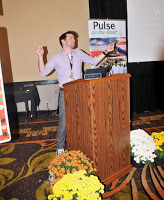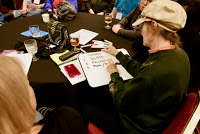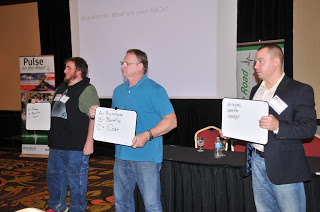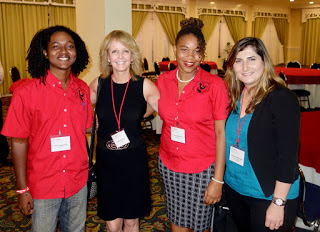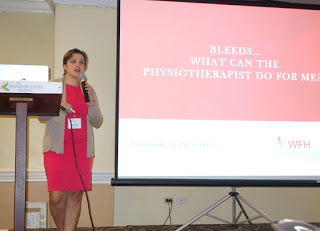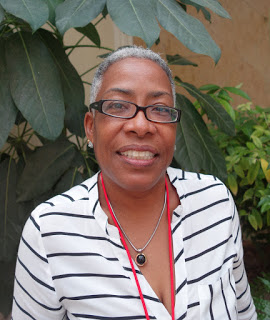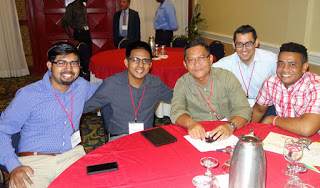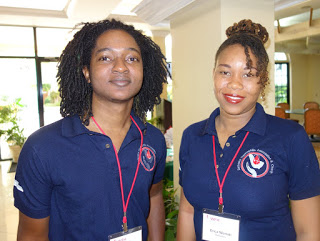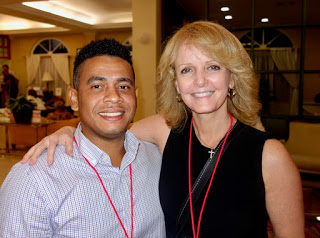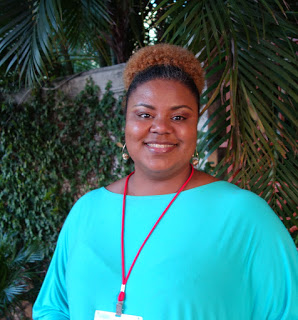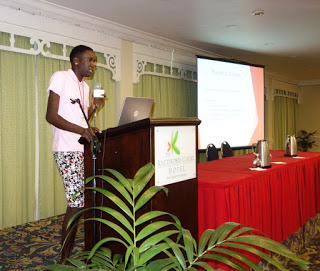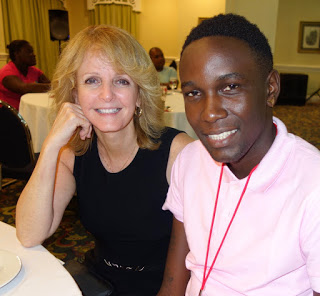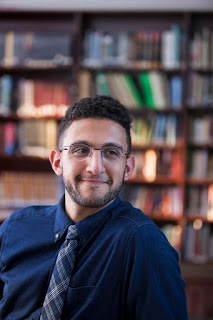Laurie Kelley
October 23, 2016
In this week’s blog, we hear a personal story from a young
man with hemophilia A, about how his self-perception changes throughout his
life, and how finding the right treatment made such a difference in the person he is
today.
Indications
ELOCTATE is an injectable medicine that is used to help control and prevent bleeding in people with Hemophilia A (congenital Factor VIII deficiency). Your healthcare provider may give you ELOCTATE when you have surgery.
Selected Important Safety Information
Do not use ELOCTATE if you have had an allergic reaction to it in the past.
It’s really difficult to find the words to describe living with hemophilia—not only because emotions and words are two completely different animals, but also because meeting new people under the premise of “Hey, I’m Laith, and I have hemophilia!” feels foreign to me.
I was diagnosed with hemophilia A after bleeding for 10 days after birth. For a time, when I was growing up, hemophilia was the coolest thing in the world—it was fascinating. I loved tagging along with my parents to the conferences and meeting other people like me. My dad drilled some strange love for science into my head early on, so the biology of it all was super attractive in my eyes. No time was wasted: I talked to my doctor and I started to self-infuse at the age of 10.
But right around the time I entered 5th grade, things really started to change. My hemophilia treatment center sent letters to my school administrators, who naturally put every teacher in the school on high alert. Something that I had thought was so cool about me suddenly became taboo. When I got to middle school, I ostracized myself. I faded into the background with my hemophilia and preferred invisibility.
The role hemophilia has played in my life became two things for me: steady and secretive.
In high school, I decided to take this opportunity to choose who I wanted to be and became “Laith without hemophilia.” My approach to dealing with my bleeding disorder in high school gave me more in common with a stealthy secret agent than I care to admit. Self-induced solitude was my friend, and I had every intention to master it as an art. “Laith without hemophilia” didn’t need to obey his prophylaxis infusion schedule. It didn’t matter how swollen my arm was, I was going to wait until I was either at home or hidden in some part of the school to infuse.
Abrupt abandonment of friendships, unexplained absences, outrageously convoluted excuses, and unreturned phone calls proudly became my hallmarks.
But, I had awesome physicians my entire life. My hematologist was persistent, justifiably so, in encouraging me to stay on schedule with my infusions. Then I heard about ELOCTATE. It may be due to my lifetime interest in the science of hemophilia, but the prolonged half-life of ELOCTATE piqued my childhood curiosity. My doctor, clever guy that he is, picked up on this. We talked and decided on ELOCTATE as a treatment option because he thought the every-four-days infusion schedule might work for me. A MyELOCTATE™ Coordinator worked with me to make sure my transition to ELOCTATE went smoothly and supplied me with medication while my insurance worked to approve it. After working with my doctor, I’ve settled into the routine of infusing every four days*. I have been able to stay on track. I schedule my infusions ahead of time, and, for the most part, I’ve kept up with them.
No two people are the same, right? Now at 24, what I’ve discovered about people in general is that to secure a place and purpose in life, one must take ownership. Being that hemophilia has been my Achilles heel in this regard, I’m treating it as a priority. I figure only then can I discover who I really am. I’m not “Laith without hemophilia.” I’m not even “Laith with hemophilia.” Hemophilia is one part of the many parts that make me whole.
This is my story; peeling back my layers one at a time and showing others that it is possible to discover who they really are.
Thank you.
Talk to your healthcare provider about whether ELOCTATE may be right for you.
*The recommended starting regimen is 50 IU/kg of ELOCTATE administered every 4 days. Adjust the regimen based on patient response with dosing in the range of 25-65 IU/kg at 3-5 day intervals.
For children <6 years of age, the recommended starting regimen is 50 IU/kg of ELOCTATE administered twice weekly. Adjust the regimen based on patient response with dosing in the range of 25-65 IU/kg at 3-5 day intervals. More frequent or higher doses up to 80 IU/kg may be required.
Important Safety Information
Do not use ELOCTATE if you have had an allergic reaction to it in the past.
Tell your healthcare provider if you have or have had any medical problems, take any medicines, including prescription and non-prescription medicines, supplements, or herbal medicines, have any allergies, are breastfeeding, are pregnant or planning to become pregnant, or have been told you have inhibitors (antibodies) to Factor VIII.
Allergic reactions may occur with ELOCTATE. Call your healthcare provider or get emergency treatment right away if you have any of the following symptoms: difficulty breathing, chest tightness, swelling of the face, rash, or hives.
Your body can also make antibodies called, “inhibitors,” against ELOCTATE, which may stop ELOCTATE from working properly.
The most frequently occurring side effects of ELOCTATE are headache, rash, joint pain, muscle pain and general discomfort. These are not all the possible side effects of ELOCTATE. Talk to your healthcare provider right away about any side effect that bothers you or that does not go away, and if bleeding is not controlled after using ELOCTATE.
You are encouraged to report negative side effects of prescription drugs to the FDA. Visit
www.fda.gov/medwatch, or call 1-800-FDA-1088.
ELO-US-1092 10/2016
This blog was sponsored by Biogen for educational purposes.

